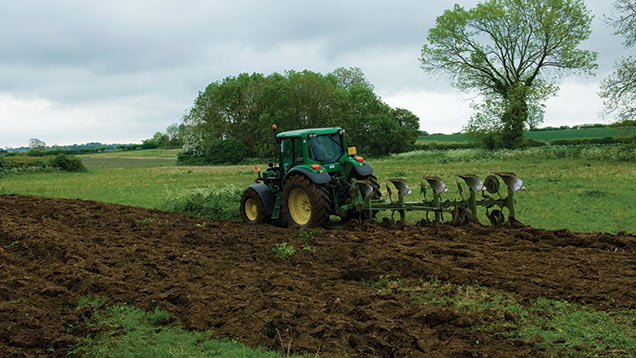- Select a language for the TTS:
- UK English Female
- UK English Male
- US English Female
- US English Male
- Australian Female
- Australian Male
- Language selected: (auto detect) - EN
Play all audios:
Some years ago, I was invited to join a panel at a north London meeting organised by a group (now defunct) called Just Journalism, which focused “on how Israel and Middle East issues are
reported in the UK media”. “Why Israel?” asked a member of the audience, which, though courteous, was largely hostile to me and another panellist, the _Channel 4 News_ presenter Jon Snow.
Why, when human rights violations were so evident in other Middle Eastern countries, were sections of the British media so obsessed with Israel’s shortcomings? Why did the Western left
protest more passionately over Israel than over more brutal regimes elsewhere? Though he didn’t intend to, the same audience member answered the questions. What Snow and I didn’t understand,
he said (I paraphrase), was that Israel was fighting an existential battle not just for itself but for Western civilisation and Judeo-Christian values. Israel was on the front line and its
fight was our fight. That, it seems to me, is how Israel’s present leaders, backed by Donald Trump, see their role. Which explains why, when the Israeli military killed at least 50
Palestinians and wounded thousands more, while themselves suffering one minor casualty, nearly every national paper and broadcast news channel led on what looked like an atrocity. And it
explains why many Britons of all political persuasions will cry: “Not in our name.” RED MEAT We should welcome the unexpected announcement that the government will allow the creation of
2,000 more grammar school places. Though the arguments against selection at 11 are overwhelming – and many Tory MPs accept them – grammar schools are much loved by a certain type of
backbencher who tends also to be a hard-line supporter of Brexit. This suggests to me that Theresa May is preparing to upset the Brexiteers by keeping Britain in some kind of customs union
with the EU and has, in compensation, thrown them a tasty morsel of traditional Tory red meat. ON THEIR UPPERS The _Sunday Times _claims that “almost all” of the people in its annual Rich
List are “entrepreneurs who built their own fortunes”. Really? True, the richest of all, Jim Ratcliffe (£21.05bn), chair of the Ineos chemicals group, was raised in a Lancashire council
house, but most others in the top 20 don’t quite seem to fit the _Sunday Times_’s description. Sri and Gopi Hinduja (£20.64bn) inherited a trading empire from their late father. The father
of Lakshmi Mittal (£14.66bn) built a steel firm in India. Charlene de Carvalho-Heineken (£11.1bn) inherited the brewing company founded by her great-grandfather in 1864. Hans Rausing
(£9.33bn) inherited half of Tetra Pak from his father. Kirsten and Jorn Rausing (£10.85bn) inherited the other half from their father, Hans’s brother. Guy and George Weston (£10.05bn)
inherited a retailing company founded by their Canadian great-grandfather. The Duke of Westminster (£9.96bn) and Earl Cadogan (£6.7bn) inherited property empires. Ernesto Bertarelli
(£9.66bn) inherited a drugs manufacturer. The _Sunday Times_ has a peculiar definition of “self-made”. FRAGILE LEGACY Tessa Jowell, who has died aged 70, deserves to be remembered not so
much for the 2012 London Olympics, as obituaries suggest, but for the Sure Start programme she launched in 1998. Aimed primarily at less advantaged families, but open to anyone, its 4,000
children’s centres offered not just early leaning and childcare but advice for parents on job opportunities, training, health, nutrition and child-rearing. Since 2010, however, funding cuts
have closed 1,000 centres. Many others open only sporadically. After 70 years, the Tories still haven’t quite killed off Aneurin Bevan’s NHS; his widow Jennie Lee’s Open University will
stagger to its 50th anniversary next year. But Jowell’s Sure Start, fit to rank with those other great Labour creations, looks near to extinction after 20 years. SOCIAL WORK Talking of
anniversaries, this summer marks 30 years since the demise of _New Society_ and its takeover by this magazine. _New Society_, launched in 1962, set out to satisfy growing interest in social
sciences rather as _New Scientist_ satisfied interest in physical and biological sciences. Though Timothy Raison, its founder and first editor, became a Tory MP, it appealed mainly to young
graduate professionals on the centre left and, for a time, it stole much of the _New Statesman_’s thunder. When the historian EP Thompson revived the cause of nuclear disarmament in the
1980s, _New Society_ seemed as natural a vehicle for him as the _New Statesman _seemed for JB Priestley and his “Ban the Bomb” campaign in the 1950s. The magazine fell on hard times when its
main source of revenue, public and voluntary sector job advertisements, dwindled. Despite promises to combine the best of both magazines, it never gelled with the _Statesman_. _New
Statesman and Society_, as it was called for a few years, combined coverage of socialism, sociology and social work. It was not a success. By 1988, all three – which a Tory MP once described
to me as “much the same thing” – had seen their best days. Fortunately, the _Statesman_ reinvented itself, and today is thriving. FALLING BLOSSOM Perhaps, as one grows older, one notices
these things more, but the tree blossom this year has seemed the most spectacular in memory. My rudimentary understanding of botany suggests it was the result of a late, unusually warm
spring, followed by much cooler weather and lots of rain but, crucially, no frosts. As I admired the displays, I reflected that, even discounting cricket and warm beer, I could live nowhere
else but England, where the fickle climate produces so many wondrous surprises. l This article appears in the 16 May 2018 issue of the New Statesman, Israel and the impossible war







